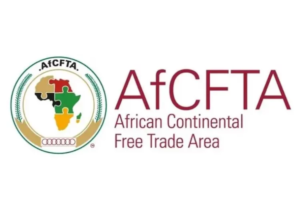Nearly 9,000 nurses from four hospitals could be on the picket line starting early this upcoming week.
They’re fighting for better pay and staffing and if no agreement is reached by 6 a.m. Monday, many nurses will go on strike.
The biggest issue with the looming strike is the adverse nurse to patient ratio.
If a new contract is not reached by the deadline, the hospitals that could be affected by a strike include Mount Sinai, Mount Sinai Morningside, Mount Sinai West, and Montefiore.
The union points to a busy emergency department at Montefiore, saying there are simply too few nurses.
Emergency room nurses have complained of having to care for patients in the hallways, while an area with more than 30 beds remains empty, due in part to staff levels.
“When they don’t have access to primary care, they come into our emergency rooms which causes the overcrowding,” Montefiore Nurse Practitioner Johnira Delone-Florian said. “And that space can be used for those patients to be taken out of the hallways and put into a bed, like everyone else.”
The New York State Nursing Association is expected to give an update at 11:30 a.m. Sunday.
The association’s president, Nancy Hagans, said the remaining hospitals are negotiating, except the main campus of Mount Sinai.
Mount Sinai began moving some vulnerable patients, including fragile newborns under intensive care, in the midst of this looming strike. Other strike contingency plans include canceling non-emergency procedures.
In an internal memo, Mount Sinai informed staff of “aggressive planning in response” to the strike threat, which will include “diverting a majority of ambulances,” beginning “to cancel some elective surgeries … will perform emergency surgery only,” “starting to transfer patients” to other hospitals and “working to safely discharge as many patients as appropriate.”
Dr. Frances Cartwright is Mount Sinai’s chief nursing officer.
“Talk about vulnerable patients, defenseless little babies,” Cartwright said. “We can’t wait until Monday, we have to plan. I sure am hoping for the best, but you have to plan for the worst.”

Nurses have been offered raises of nearly 20 percent, but they also want improved staffing levels.
“Right now we are bargaining for the safe patient-nurse ratios at the other hospitals, including Mount Sinai,” Hagans said. “We are urging Mount Sinai to come back to the table and negotiate with our nurses, negotiate in good faith, walking away in the middle of negotiations is negotiating in bad faith.”
The nurses’ union says officials at Mount Sinai’s main campus walked out of talks Thursday night.
Negotiations at Mount Sinai West and Mount Sinai Morningside continued Friday afternoon and into the evening. Officials at Mount Sinai Hospital’s main campus are hopeful negotiations with their nurses Saturday morning will spark some agreements.
Mount Sinai has offered its nurses 18% wage increases over the next three years, according to an internal memo shared Thursday night. The increases would be 7%, 6%, and 5% over the next three years, which year to year compounds to 19.1%.
The hospital believes it is similar to increases previously agreed to by the nurses in negotiations with NewYork-Presbyterian. But Mount Sinai management walked away from the table at midnight and canceled the bargaining session for Friday, Hagans said.
Similarly, Montefiore Hospital in the Bronx says it offered an 18% wage increase, as well as “fully funded healthcare for life, and a significant increase in registered nurses in the emergency departments.”
Friday morning, New York Gov. Kathy Hochul commented on the situation, saying she has taken a “very intense role” in the talks and has been “in constant conversation” with the hospitals and union.
“My full expectation is that this will be resolved because there is no alternative,” she said. “We need to make sure that people in New York are taken care of.”
The New York State Nurses Association has made clear that a key negotiating point surrounding its stated main issue of staffing is the enforcement of staffing ratios.
A provision in the NY Presbyterian contract requires enforcement of staff-to-patient ratios, instead of a mediator making non-mandatory recommendations about staffing levels.
The union announced agreements Thursday with Maimonides Health and Richmond University Medical Center.
Abc7ny



























